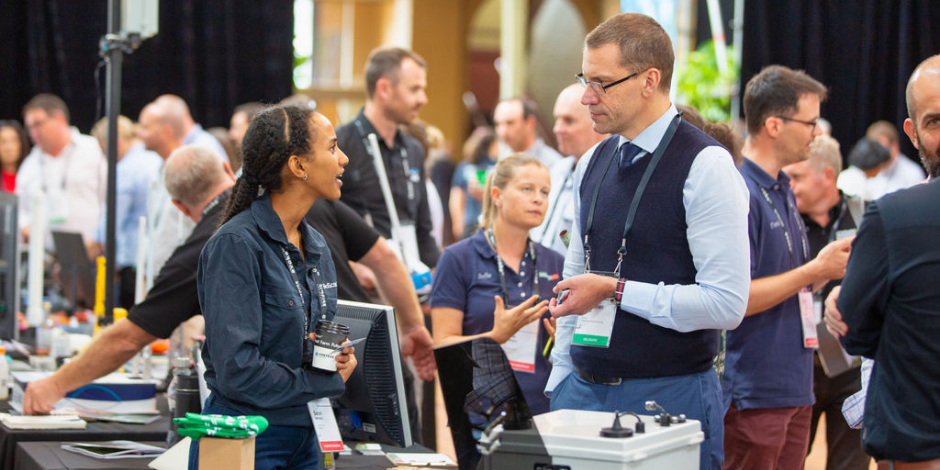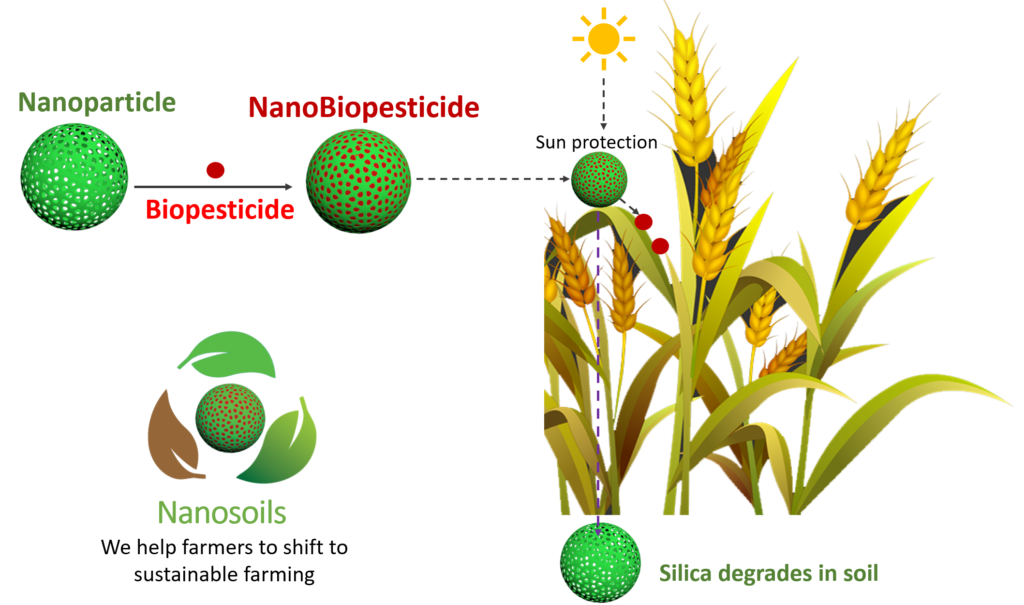The power of good advice: East West Capital and Nanosoils work together
Gordon Black of East West Capital and Cong Vu of Nanosoils share their learnings from the Grassroots Series mentoring program, why the future is bright for Aussie startups with global investment on the rise – and why being open to change is key to growth.

“There’s an awful lot to think about for emerging agtech entrepreneurs,” said CEO and founder of venture capital firm East West Capital, Gordon Black.
“You almost need three heads on your shoulders to really intelligently and accurately figure out the product development pathway from your technology breakthrough.”
Gordon knows how challenging the startup journey can be and has been mentoring emerging agritech entrepreneurs for years, most recently as part of the Grassroots Series.
RELATED: Tips for building an agritech startup that solves real problems
A partnership between evokeAG. and Cicada GrowLab, the Grassroots Series paired industry-leading mentors with agritech founders helping to shape Australia’s future agrifood system. Solutions range from IoT, robotics and automation that optimise human labour – to input management, crop protection and traceability systems that boost sustainability.
Gordon said, “It’s not surprising when you get to a certain age, you think ‘Oh, I’ve been lucky with my education and door openings and career’. You start looking back, instead of just looking forward all the time. I’m spending more time, trying to figure out how we can lift the startup ecosystem here in Australia and produce more commercial agtech companies.”
With a global agricultural system increasingly under pressure and an estimated 2.5 billion more mouths to feed by 2050, “The time is closing in, where every dollar has to go to a project that can really make a scale difference.”
“So that guides our thinking [at East West Capital] and we’re looking at the next big thing.”
One of those ‘next big things’ is Nanosoils, a Sydney-based startup co-founded by Cong Vu and Professor Justin Gooding, who are using silica nanoparticles to precisely deliver agrochemicals directly to plants. Their innovative approach minimises runoff and residue, while enhancing production benefits.

As part of the Grassroots Series’ Mentor program, Gordon was paired with Nanosoils co-founder Cong Vu – who recently completed his PhD in nanomedicine. “The nanoparticle is 1,000 times smaller than a human hair, and we’ve been using it to deliver anticancer drugs directly to cancer cells. I thought we might use the technology to deliver a better-sized chemical particle to improve agricultural applications,” said Cong.
Cong has several mentors, but Gordon’s knowledge of the agritech market – and Nanosoils’ product market fit – set him apart. “Gordon studied biochemistry at the same university as me. He realised we can use this technology for biopesticides; that those companies could be our partners in sustainability, not our competitors.” It was strategic advice that flipped Cong’s thinking on its head – leading to a full product market redirection. “It was a good check for us. It changed the whole story – our whole company direction,” explained Cong.
Gordon said, “Entrepreneurs can spend a lot of time trying to figure out where the best payoff opportunities are for them right now. Knowing how to conduct commercial trials in agriculture, knowing who you should partner with – they’re all things that are hard to understand if you’re coming out of the chemistry lab with a new breakthrough delivery system. And without the Grassroots Series, or series like it, to connect mentors to give a helicopter vision of what’s going on strategically in the payoff area for these emerging agtech companies, it would be really difficult to find out which way to go.”
RELATED: ‘The accidental entrepreneur’ and unlocking innovation in the Asia Pacific
“That’s why it’s a really good thing to have a mentor. Just knowing what the strategic issues are at each of the major value creation points helps to tighten up an entrepreneur’s business plans and product development pathways with scarce capital.”
Gordon’s help didn’t stop at strategic advice. “Once I found out more about Cong’s fledgling business plan, I contacted [US ag sciences giant] FMC to look at what Nanosoils is doing and to tighten up a product development program, potentially leading to trials with one of FMC’s biological pipeline candidates for cropping here in Australia.”
Cong added, “They’ve already developed the biopesticides so we could integrate our nanotechnology with their product now. It’s the most exciting thing.”
Making the most of your mentor relationship
Gordon and Cong agree that finding the right mentor is key. Gordon advised to, “Do some cross-checking to find out who they are. Are they a service provider? Legal? Operational? Or is it somebody more strategic who can help develop trials or tighten up the product development pathway and/ or give funding? You need to know what the mentor can do for your venture.”
And once you’ve found the right one, “or suite of right ones” as Gordon suggests, you need to make an effort. “Your mentor will be busy but keen to help, so prepare and tighten up what your specific needs are and what it is you’re seeking. Be upfront and honest because a mentor will want to understand where you’re coming from. It might not align with what they think is best, but it establishes the foundations of a good, productive working relationship.”
RELATED: Australia’s agrifood tech leaders join forces to drive on-farm adoption
He added, “The entrepreneur is busy too, going in a thousand directions to get their venture off the ground. You need to be efficient with the knowledge transfer. Ask the right questions and keep your mentor informed between meetings on how you’re going.”
A ‘Golden Era’ is dawning for Australian agtech
Compared to the US, the global powerhouse for startups, Australia’s startup community is less mature – with a lower number of startups and fewer large funding rounds to accelerate scale.
Gordon considers Australia’s biggest challenge is “a lack of global champions here that can actually have a global footprint with agricultural products selling globally as well as here in Australia”.
“It’s difficult to come up with new ventures that can be accelerated and commercialised quickly.”
He believes Australia’s brand narrative is compelling to international investors who will bring funding onshore, attracted by “political stability and geographic advantage of being on the doorstep of Asia; the potential of our vast landmass; our advanced infrastructure; and world-renowned ag research (led by the Rural Research and Development Corporations and CSIRO)”.
“I think we’ll see a lot more international investment in Australia coming back the other way. There’ll be more offshore people coming onshore and networks will improve. So, the ability to be local here and go global will be easier. Our ‘Golden Era’ is coming up.”
And with the right advice, the path ahead for Australian agritech startups looks bright.
Enjoyed this story? Want to learn more about the Asia Pacific region’s innovative agrifood tech ecosystem? Sign up for our newsletter here and receive fresh stories about global leaders, farmers, startups and innovators driving collaborative change.
